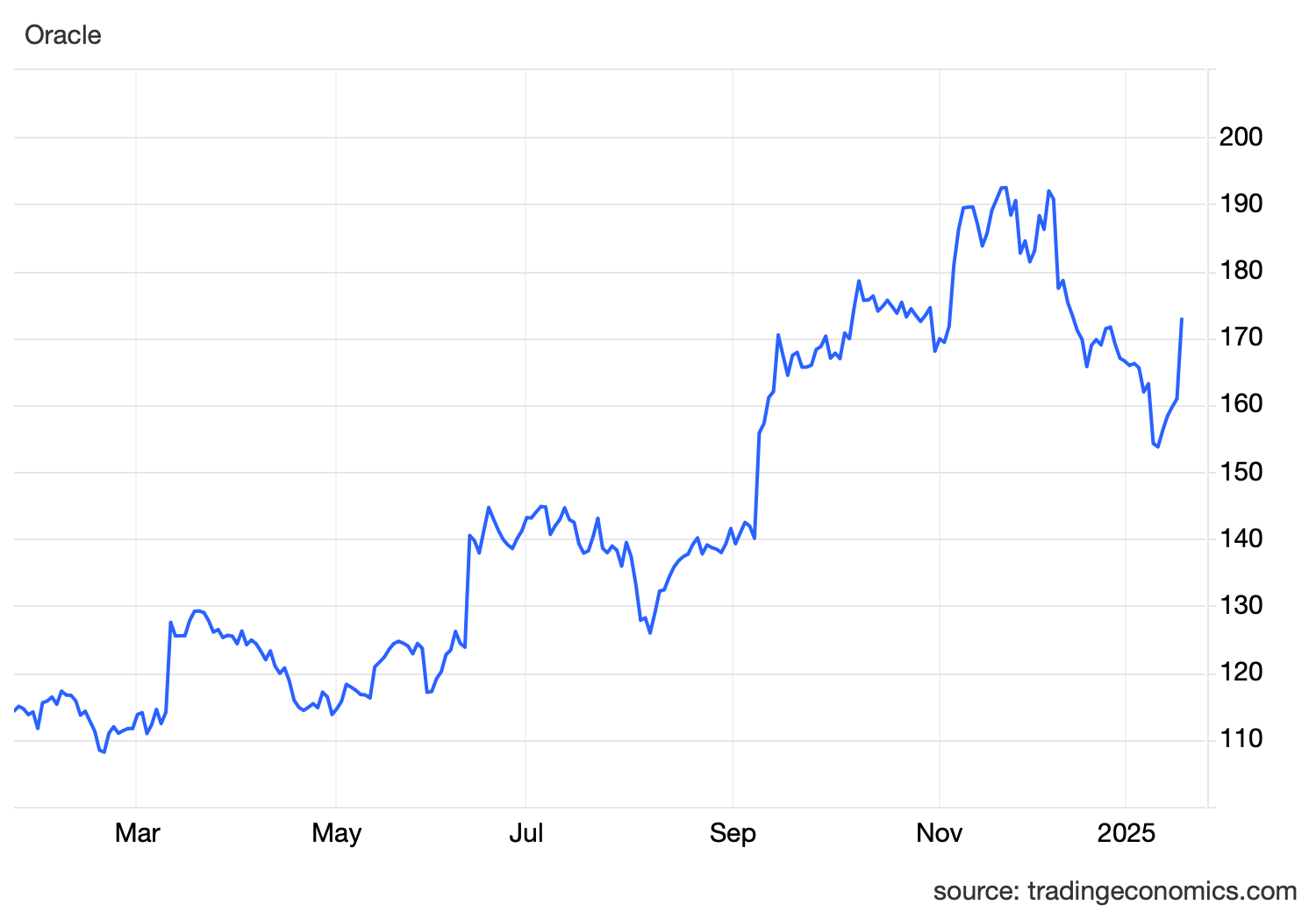A Bold Start: Stargate and AI infrastructure
The Stargate project immediately piqued my interest, especially with its ambitious plans to begin with a massive data center in Texas. The initial commitment of $100 billion, led by Oracle, OpenAI, and SoftBank, feels like just the tip of the iceberg. The expectation that other companies will join and bring the total investment to $500 billion over the coming years only adds to the venture’s appeal.
I was particularly impressed to see industry heavyweights like Oracle CEO Larry Ellison, OpenAI chief Sam Altman, and SoftBank’s Masayoshi Son at the White House event. Their direct involvement reinforces my confidence that Stargate is not just a political announcement but a tangible investment opportunity. President Trump’s claim that this project will create "over 100,000 American jobs almost immediately" also highlights its potential economic impact.
Market reaction: Oracle leads the charge
The market’s response to this news was swift and positive. Oracle’s (NYSE: ORCL) stock shot up by 7% during the day, and it didn’t stop there, climbing an additional 3% in after-hours trading.* Watching this play out, I couldn’t help but feel that Oracle is positioned to reap significant benefits from this venture, both in terms of immediate gains and long-term growth. [1]

Oracle's share price performance over the past five years
With SoftBank’s vast portfolio in tech and AI and OpenAI’s leadership in generative AI, I see Stargate as a strategic move to consolidate dominance in the AI infrastructure space. For me, this cements these companies as key players worth considering for future investments.
Policy shifts and big tech’s response
Trump’s decision to rescind a Biden-era executive order on AI safety guidelines caught my attention as well. By removing the requirement for generative AI models to undergo government safety testing, innovation could accelerate. While this policy shift raises questions about potential risks, it also opens up opportunities for companies to scale faster without regulatory delays.
I couldn’t overlook the presence of tech leaders like Amazon’s Jeff Bezos, Meta’s Mark Zuckerberg, and Apple’s Tim Cook at Trump’s inauguration earlier this week. Their attendance signaled a potential warming of relations between Big Tech and the administration, which could lead to exciting collaborations and investment prospects in AI, cloud computing, and other cutting-edge technologies.
Broader implications for my portfolio
Stargate’s implications extend far beyond AI. I see this initiative as a signal for a broader economic strategy under the Trump administration. The focus on infrastructure, energy, and trade policies could impact several industries, and I’m already considering how to align my portfolio to capitalize on these developments.
For me, the key investment opportunities include:
– Companies involved in AI infrastructure, such as Oracle, Nvidia, and Microsoft.
– Sectors likely to benefit from job creation and infrastructure spending.
– Safe-haven assets like gold, which could see increased demand amid geopolitical uncertainties.
Conclusion: A time to act
The Stargate initiative feels like a game-changer. Seeing Oracle’s stock surge reinforced my belief in the project’s potential, and I’m already exploring other players in the AI space that could benefit from this momentum.
While the political and regulatory landscape remains a bit volatile, I believe the opportunities Stargate presents outweigh the risks. As I reflect on yesterday’s developments, I’m convinced this project could become a cornerstone of America’s economic strategy in 2025—and a cornerstone of my own investment approach.
* Past performance is no guarantee of future results
[1] Forward-looking statements are based on assumptions and current expectations, which may be inaccurate, or based on the current economic environment which is subject to change. Such statements are not guaranteeing of future performance. They involve risks and other uncertainties which are difficult to predict. Results could differ materially from those expressed or implied in any forward-looking statements.
Source:
https://www.cbsnews.com/news/trump-announces-private-sector-ai-infrastructure-investment/








